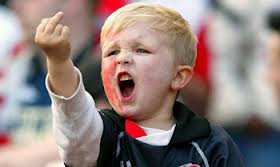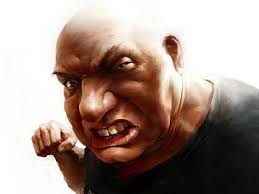 Unless you’ve been living under a rock recently a lot has been happening on the broad landscape of contemporary masculinity.
Unless you’ve been living under a rock recently a lot has been happening on the broad landscape of contemporary masculinity.
First, Jamie Packer, media mogul and Australia’s riches man went toe-to-toe in a street brawl with the head of a major TV station David Gyngell.
Second, professional rugby player Konrad Hurrell posted a sexually explicit video of himself and a female TV reporter and finally cricketer Keiron Pollard decided to throw his bat at the head of bowler Mitchel Starc.
Keep in mind these are just the stories that made the news due to their ability to sell copy and spark public interest, commentary and confected outrage.
So what’s up with men and what does it mean for the boys we teach and parent?

In The Men We Need Program we devote a huge amount of time to the issue of testosterone and how we can mentor and guide young men into directing it in prosocial ways. Let’s state the obvious, women don’t often tend to brawl in the street. It does happen but it’s rather rare. They also are somewhat less likely to post sexually compromising videos of themselves of their own volition and they are not conspicuously known for throwing sporting equipment at each other. Granted, it probably does happen but let’s agree that men seem to have the market cornered on many forms of physically and sexually dangerous or demeaning behaviour. Why?
Testosterone is an anabolic steroid. It’s powerfully linked to aggression but it is also the same hormone that will see a father die defending a child or a man charge into a burning building to rescue an unconscious pensioner. Its powerfully linked to sexual crime, one-punch violence and domestic abuse but it’s also the same hormone that led men up the beaches of Gallipoli and Normandy.
In short, testosterone is neutral. It simply provides an energy source for behaviours that are shaped by a complex range of psychological, social, cultural and personal forces. The danger is that we vilify testosterone and somehow define manhood by its excesses. The compelling task before us is to help boys learn the skill sets, attitudes and virtues that allow them to direct their testosterone based energy and, at times, anger in ways that don’t wound themselves and others.
My critique of some areas of feminist and educational theory is that we often seek to turn boys into something safe and harmless, dare I say it, tame, impotent?
Often, in our schools we reward boys for behaviours that suppress testosterone’s manifestations of movement, energy and boisterousness. We correspondingly punish unpredictability, spontaneity and the energy that can at times manifest powerfully as toughness, single-mindedness and assertiveness.
Part of the challenge is to reflect on just how comfortable we are with testosterone and what we actually want boys to become.
For me, I love the energy and latent capacity for heroism in manhood itself. I also love the initiative and action of boys, their camaraderie and loyalty.
In The Men We Need we make the point that testosterone itself is neutral. What matters is helping boys to direct their amazing energy into ways that serve, love, protect, and edify those around them and the wider world. We disempower them by making testosterone the enemy. We rob the world of their creativity, entrepreneurship, imagination and energy.
After delivering seminars to tens of thousands of boys around the world I know that they carry a deep hunger to be good men. It can be buried. It can be hidden under withdrawal, or rage or pain but it is there. We need to unleash that desire by casting a grander vision of a noble manhood. Then we need to mentor them in the skills and commitments they need to live it out. Easy? No. Possible? Yes.
So, what are you doing in your home or school to help boys and young men direct the energy of testosterone? What vision are you building or stories are you telling that encourage them to a new ideal about what it means to be fine man?
Sign up below to receive all our best written and video blogs on boys' education.
We'll keep you up-to-date with the best news, ideas and content in boys' education.
